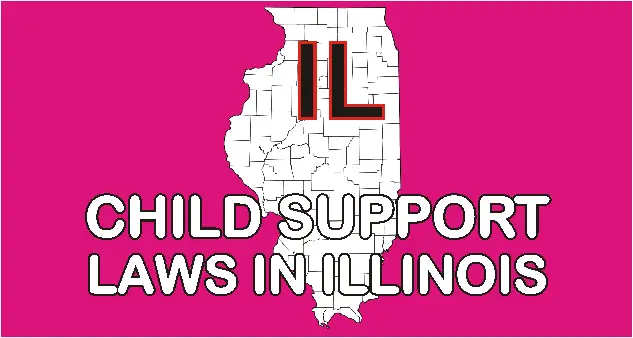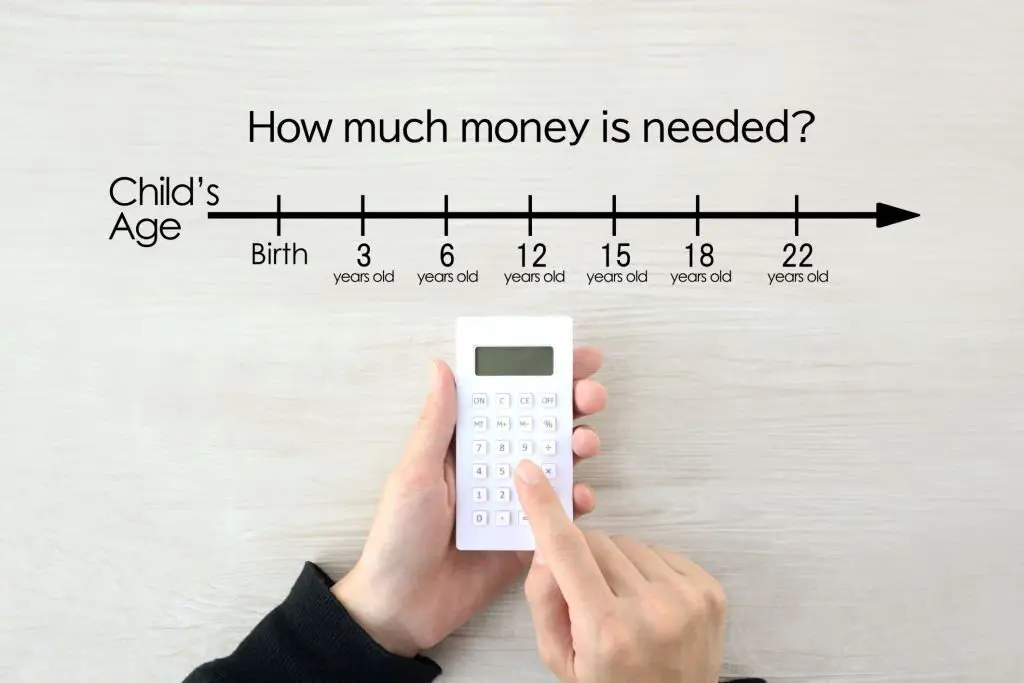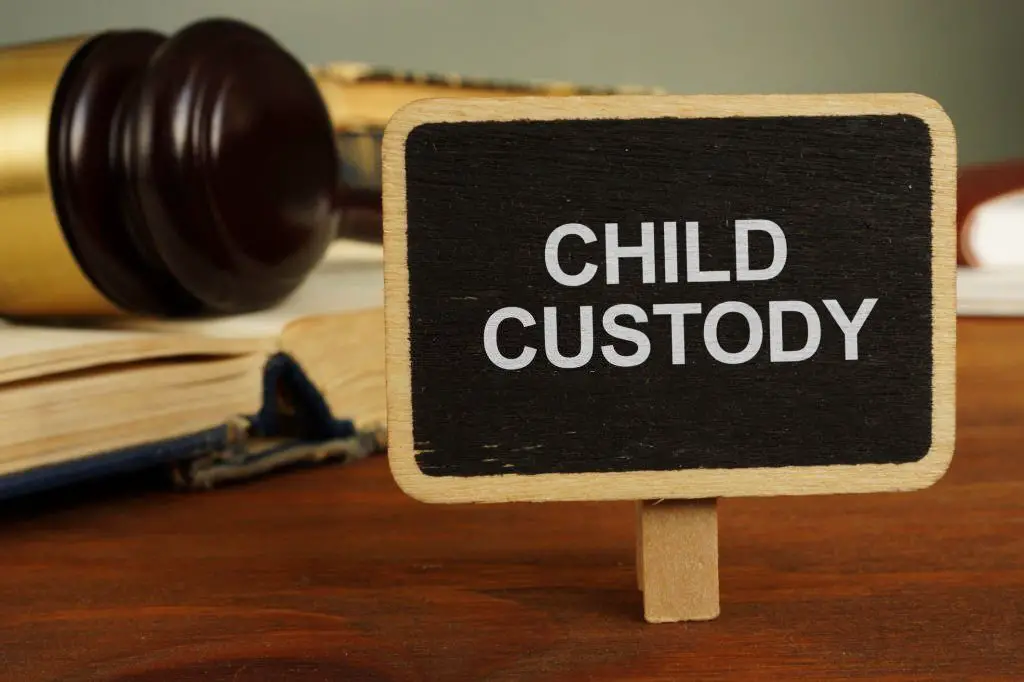
The laws governing child support in Illinois are different from that of other states. IL child support law sets how much the child maintenance should be, and the duration of such payments, plus it seeks to guide parents in exceptional cases such as deviation, support for disabled children, and retroactive support.
As you may already know, child support (or child maintenance) is a continuous monetary payment made by a spouse to another spouse, guardian, caregiver, or the state for the upkeep of children after a divorce or separation.
The person who is required to pay child support is referred to as the “obligor,” whereas the person who is eligible to receive child maintenance is referred to as the “obligee.”
What is IL Child Support Laws?
With the new Illinois statute as contained in the Illinois Marriage and Dissolution of Marriage Act (IMDMA), the incomes of both parents are taken into account when determining child support. As a result, the calculation of child support is based on the parents’ total net salaries. It’s known as “Income shares model”
The previous approach, which calculated flat percentages based on the number of children, is no longer employed. Child support is currently computed in the following manner:
- By putting each parent’s gross income through a gross to net conversion chart, you may determine their “net income.”
- The combined net income is calculated by adding the net earnings of both parents.
- Find the percentages of each parent’s net income that correspond to the combined net income.
- To determine the minimal child support requirement, the combined net income from step 2 will be entered into an income shares chart.
- Add the percentages from steps 3 and 4 together to get the final amount for each parent.
- The generated figures represent the amount of child support due from each parent. It will be assumed that the child has already received the amount assigned to the parent who has the majority of the child’s time. The amount for the non-custodial parent will represent that parent’s obligation to pay child support, which must be sent to the non-paying parent.
According to the new income-shares model, Illinois courts believe that a family’s average child-rearing expenses ought to be comparable to the income level that would have been in place had the parents remained married.
What does Child Support Cover in Illinois?
IMDMA makes it abundantly obvious that a parent’s responsibility to support a child “includes the commitment to provide for the child’s reasonable and essential physical, mental and emotional health requirements.” This may include essential recurring costs for things like clothing, food, and housing.
In addition to the standard child support obligation, the court may also impose a duty of support. For example, the court may, in its opinion, require one or both parents to:
School costs and extracurricular activities.
This covers “appropriate school and extracurricular expenses expended” for the purpose of “improving the child’s educational, athletic, social, or cultural development.”
Childcare costs.
This covers actual costs that are reasonably required to free up a parent so they can work or try to find work, as well as deposits to secure a spot in a child care program, the price of before- and after-school care, and camps during the summer.
Insurance and healthcare.
This is to pay for common, everyday out-of-pocket medical costs like deductibles and copayments. The court may, at its discretion, order one or both parents to initiate health insurance coverage for the child under any valid health insurance policies they currently hold, to purchase any or all health, dental, or vision insurance policies for the child, or to take other steps to meet the child’s present and future medical needs.
Others include:
- non-reimbursed medical costs
- significant costs for treatment or education, and
- life insurance to guarantee that the child will have money in the event that one of the parents passes away.
Child Support When One Parent Lives Outside Illinois
To enforce child support orders beyond state boundaries, each state has to have the Uniform Interstate Family Support Act (UIFSA) in place. Illinois is no exception.
The UIFSA ensures that child support processes and procedures are consistent across states. When one spouse lives in another state where the Illinois courts do not have authority to adjudicate or enforce orders, UIFSA reduces these bottlenecks.
As a result of the UIFSA however, Illinois must request that the other state or nation enforce the child support order on its behalf in accordance with its own laws if:
- Illinois lacks jurisdiction over the parties;
- Illinois cannot remove money from an individual’s paycheck to pay child support;
- The NCP/obligor resides in a foreign nation or a state that has not ratified UIFSA.
How is Child Maintenance Calculated In Illinois?

Learn How Child Maintenance Calculated In Illinois
Before 2017, the method used to calculate child support under Illinois law had been to take the debtor’s net income (gross income less taxes and perhaps other deductions) and multiply it by a specific percentage, for example, based on the number of minor children. So, based upon the number of children, tables would indicate support payments as a straight proportion of the paying parent’s income.
That’s not how it operates right now. The “income shares” approach, which takes into account both parents’ incomes for determining child support amounts, is used under Illinois’ child support standards.
Steps to Calculate Illinois Child Support Amounts
While the Illinois Child Support Estimator can be used to estimate the amount of child support that would be applicable in your situation, the worksheet and tables on the Illinois Child Support Guidelines-Income Shares webpage can be used to calculate child support with greater accuracy. The basic steps are as follows:
-
Determine the net earnings of each parent.
You will either utilize the conversion chart for standardized net income (which is modified annually depending on standard tax deductions) or calculate personalized net income depending on your deductions after determining gross income from all sources (but this will require an agreement with the other parent or court order).
-
alterations to the parents’ net earnings.
When one or perhaps both parents are also providing for children from other relationships, the formula allows for an adjustment. The amount of spousal support (alimony) payments may also be adjusted.
-
Obligation for child support.
The Income Shares Schedule displays the overall basic amount of child support, which is based on the parents’ combined adjusted net income. The amount that each parent contributes to that total is then determined by their proportional share of the joint net income.
(750 Ill. Comp. Stat. § 5/505 (2022).)
Illinois Child Support Calculator and Worksheet
While a child support calculator can be used to estimate child support, it is not a guarantee of the final amount of child maintenance that the judge will order. The Illinois child support obligation worksheet is a form used by the IL courts (or negotiating spouses) to approximate the basic child support obligation of the parents.
Regardless of which approach you use, spouses can decide on a child support sum and amend the worksheet accordingly to ensure it accurately reflects their agreement. Both establish a presumption duty to pay child support.
The final decision on the amount of child support is made by the administrative law judge, administrator, or court.
Gross Income Included in Calculating Child Maintenance
For child support calculation purposes, gross income includes:
- all wages and salary, including commissions, military pay, tips, overtime, and bonuses
- self-employment income
- interest and dividends
- net rental income from property the parent owns
Even jobless parents are likely to have some sources of income, like:
- severance pay
- unemployment benefits
- retirement benefits
- veterans’ benefits
- disability benefits, or
- workers’ compensation awards.
An IL family court judge may also allocate an income value to parents who do not currently have income-earning employment (like a second house). If a jobless parent inherits assets that can be sold, for instance, the judge may include the property’s market value as a part of such parent’s income.
Where parents willfully go unemployed or underemployed in order to avoid paying child support, judges may infer (assign) income based on what they are supposed to be earning.
Net Income for IL Guidelines

How to determine Net Income for IL child support
Remove the following costs from the total gross income to get the parent’s net income for paying child support in Illinois:
- Social Security taxes, or any mandated retirement plan contributions if the parent does not pay those taxes.
- Income taxes, both federal and state (based on the tax rate for a single person claiming one exemption)
- union dues
- The IL court has ruled the parent to pay the child’s health and dental insurance premiums, as well as additional medical bills.
Parents who have already paid child support for another kid or children (from a previous relationship) may be eligible for a refund.
Is Medical Health Insurance Part of Child Support in Illinois?

Medical Health Insurance and Child Support in Illinois
Yes, in addition to the amount of support determined by the guidelines in Illinois, the parents will be responsible for the child’s health and dental insurance.
Whereas the noncustodial parent is presumed to provide coverage, this can readily be transferred to the other parent if it makes good sense.
For instance, suppose the custodial parent’s employer offers healthcare insurance for the dependent but the noncustodial parent does not.
Factors Illinois Courts Consider Before Ordering Maintenance
The following factors must be considered by the court when determining whether Illinois Family Code applies:
- The age of the child and needs; the parents’ ability to assist
- Financial resources available to the child
- For a set period of time, you have custody and access to a child.
- An increase or decrease in the obligee’s earnings or income due to the obligee’s property and assets
- Child care expenses incurred by either parent in order to keep a job
- any other children under the care of either party
- Any other children under the care of either party
- What kind of alimony or spousal maintenance is being paid or received;
- Obligor or obligee receives an automobile, house, or other benefits from his or her employer or business entity.
- The parties or the child’s special education, health-care, or other expenses
- The cost of traveling to obtain custody of and access to a child.
- Cash flow from any estate and assets, including real estate, personal property, and business property, can be positive or negative.
How to Challenge or Modify Child Support Order
Illinois child support obligations can only be modified by submitting a request to the court which has jurisdiction over your case asking for an increase or reduction in child support. The petition should include a “prayer for relief” outlining the change in child support obligation you are asking the court to make, as well as the reasons for your petition for modification.
You should be aware that in Illinois, self-help cannot be used to change child support. You are not allowed to stop paying child support without a court order in the event that the other party violates visitation rights.
Also keep in mind that since vested child support obligations cannot be modified, you can only apply to alter obligations that have not yet been due. A child support payment that has already become due in accordance with the conditions of the judgment is referred to as having “vested” status.
Reasons for Modification of Child Support in IL
The petitioner must demonstrate that there has been a “substantial change of circumstances” since the last judgment was entered in order for the court to modify child support.
The court has wide discretion to decide what constitutes a substantial change in circumstances. Through cases decided by case law, the Courts have specified what constitutes a “substantial change in circumstances,” such as:
- Increases in Inflation and Cost of Living
- Increasing Children’s Needs
- The Obligor Parent’s Financial Capability Has Increased
- A Parent’s Reduced Financial Capability
- The receiving parent’s financial capacity has increased or decreased.
- Remarrying of One of the Parents
- Modification in the Distribution of Parenting Time and Custody
- The release of a minor
- An increase in the child’s financial resources
Steps to Collect Child Support in Illinois

Steps to Collect Child Support in Illinois
Getting a child support order in place is only half the struggle in Illinois. You’ll also have to collect the money itself. A noncustodial parent is responsible for paying the full amount of child maintenance per month as imposed by the court. Here are the steps for getting child support in IL
1. Open a Child Support Case
Complete a child support application with your local child support agency/office
2. Locate the Other Parent
To begin the child maintenance procedure in IL, the child support services (CSS) office will use the information provided by the applying parent, as well as information gathered from other sources, to try to locate the other parent.
3. Establish Parentage
It’s critical to establish a legitimate relationship with the child when the other parent has been located. The state will assist you in locating the sufficient means. Parents can choose to acknowledge their parentage voluntarily or organize a genetic screening.
4. Establish a Child Support Order
An Illinois child support order specifies how much the other parent should pay and includes details such as the payment schedule and provisions for the child’s health insurance.
5. Set Up Payment
Deducting child maintenance from a parent’s paycheck and transferring the money to the other parent or guardian is the most typical method of payment. It’s a simple way to make and track child support payments.
6. Enforce the Support Order
Your IL child support services will enforce the child support order if the noncustodial parent does not pay the full amount or does not pay any. Exposing overdue child support payments to credit bureaus, intercepting income tax refunds, and Withholding child maintenance from unemployment or worker’s compensation benefits are examples of other enforcement measures.
7. Review the Order
Three years after the order is issued, either parent can request their local child support office to revise it. They can ask for a reassessment sooner than three years if a parent’s situation has changed significantly, such as loss of employment or imprisonment.
Illinois Child Support Services Office, Number and Login Portal
HFS Child Support Services
Address: 509 S 6th St, Springfield,
IL 62701,
United States
Phone: +1 800-447-4278
Website: https://www.illinois.gov/hfs/childsupport
Email form
Retroactive Child Support and Arrears in IL
There is no statute of limitations in Illinois for pursuing unpaid child support. As a result, even after a child has grown up, people may still be responsible for paying child support.
Additionally, before the kid reaches the age of majority, parents who are seeking child support for children with impairments must request modifications for existing orders. The primary parents shall not be entitled to seek any additional support or any arrears that may accumulate absent a request and order of the court.
However, if you need a reduction in your child support obligation, you can use the Clean Slate program. It is a Child support arrears forgiveness program provided by the Division of Child Support Services at Illinois Healthcare and Family Services. By agreeing to make regular court-ordered child support payments to the family, the program enables the permanent elimination of past-due child support obligations owed to the State of Illinois.
If you feel the arrears are being demanded wrongly, you can learn how to get child support arrears dismissed HERE.
How to Pay Child Maintenance in Illinois
In Illinois, parents can pay child maintenance in a variety of ways, as long as your order doesn’t state otherwise:
- by debit or credit card,
- mail,
- check
- bank transfer
- direct deposit
- income withholding, or
- auto-draft from a bank account.
How to Check your Child Support Payment History in IL

How to Check Child Support Payment History in IL
When there are disagreements between the parents and a need to confirm how much money is owed, child support payment records are extremely beneficial.
The customer support line for the Disbursement Unit is 877-225-7077. They will ask for your name and PIN number, so be prepared with the following details:
- FIPS number
- Case Docket number
- County name
If you are unaware of any of that information, you can discover it online on the page that contains the past two months’ worth of your child support records.
When Does Child Support End in Illinois?
In Illinois, support continues until the youngest (or only) child reaches the state’s legal age of emancipation, child support is required. At the age of 18, a kid in Illinois becomes legally independent. Current child support is discontinued at emancipation unless expressly stated in writing or stipulated in a court order.
However, as of June 1, 2003, the Department is permitted by Illinois law to continue paying child support until the kid reaches the age of 19, or until the child graduates from high school, whichever comes first. Administrative and judicial cases are eligible for this high school extension.
Additionally, the amount paid for current support may be carried over until the past-due amount is settled if it is still outstanding at the time of emancipation.

Understanding Custody Rights of a Child in Illinois
How Does IL Child Support Work if one Parent Has no Job?
When one spouse is unemployed or underemployed, the court may nonetheless compel the parent to pay a minor amount of child support since Illinois courts calculate the amount of child support payments on each parent’s net income comparative to one another. The paying spouse may also be required by the court to perform other actions, such as searching for employment and submitting a set number of job applications per month.
The parent’s real income will be utilized to determine child support if the unemployment or underemployment is involuntary and the parent has made and is still making good faith efforts to find work.
On the other hand, an obligee (the recipient of child support) who is involuntarily unemployed or underemployed will get more from the obligor than they would if they had a full wage.
Is Child Support Tax Deductible in Illinois?
NO. In Illinois, child support payments are neither taxable to the recipient nor tax-deductible by the payer as stated by the IRS. Don’t include child support payments when calculating your gross income to see whether you have to file a tax return.
However, either parent may be eligible for a dependency exemption per child. If the parents can’t agree on who receives the exemption, the judge will set out the terms in a court order.
Illinois Child Support Questions and Answers
The entirety of this article contains the most common Illinois Child Support Questions & Answers which may already be what you probaby have in mind.
Getting a Skilled Illinois Child Support Attorney
If you are involved in a family law matter in Illinois, you may have a lot more questions than answers at this moment. You are not alone; Correspondence with members has shown that using the services of specialized child support attorneys saves a lot of hassles and most importantly, ensures you come out as a winner for you and your kid.
If you need to fight your child maintenance cause in IL with confidence, then you’ll need attorneys that are both empathetic and strong.
Luckily, we have compiled a database of these expert child support lawyers and made them available for the convenience of our members. You can reach them at the click of a button for legal advice and representation on child maintenance.
Click Here to Get our Free Illinois Alimony recommendation.
Illinois Resource
- Illinois Child Adoption Guidelines
- Illinois Childcare Guidelines
- Illinois Child Custody and Visitation Guidelines
- Illinois Child Support Guidelines
- Illinois Divorce Guidelines
- Illinois Marital Property Guidelines
- Illinois Spousal Support Guidelines
- How to Check Illinois Child Support Payment History
- Illinois Child Support Obligation Worksheet
- Illinois Child Support Calculator
Child Support Laws in all 50 States
A - Alabama | Alaska | Arizona | Arkansas
C - California | Colorado | Connecticut
D-H - Delaware | Florida | Georgia | Hawaii
I - Idaho | Illinois | Indiana | Iowa
K-L - Kansas | Kentucky | Louisiana
M - Maine | Maryland | Massachusetts | Michigan | Minnesota | Mississippi | Missouri | Montana
N - Nebraska | Nevada | New Hampshire | New Jersey | New Mexico | New York | North Carolina | North Dakota
O - Ohio | Oklahoma | Oregon
P-S - Pennsylvania | Rhode Island | South Carolina | South Dakota
T-U - Tennessee | Texas | Utah
V-W - Vermont | Virginia | Washington DC | Washington State | West Virginia | Wisconsin | Wyoming




